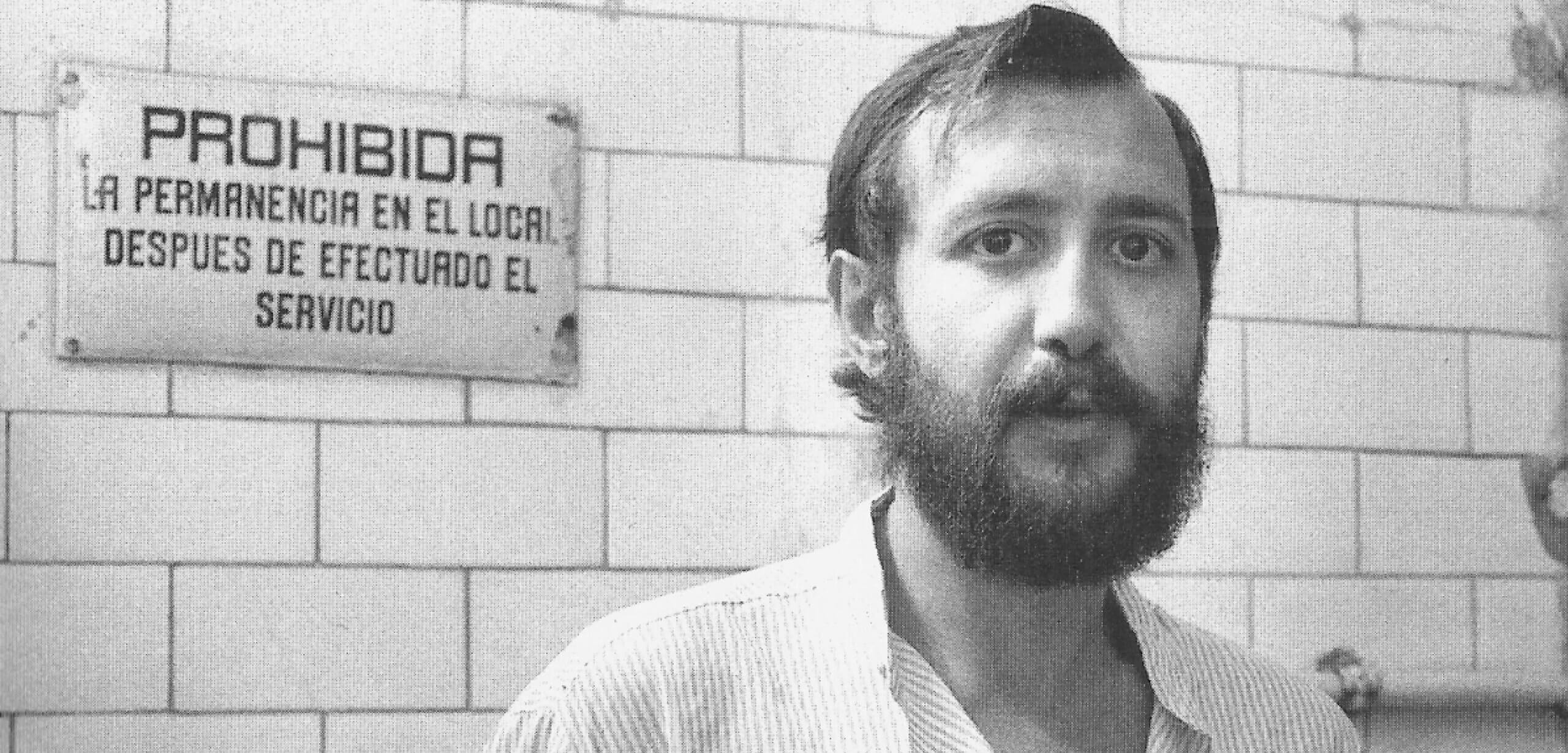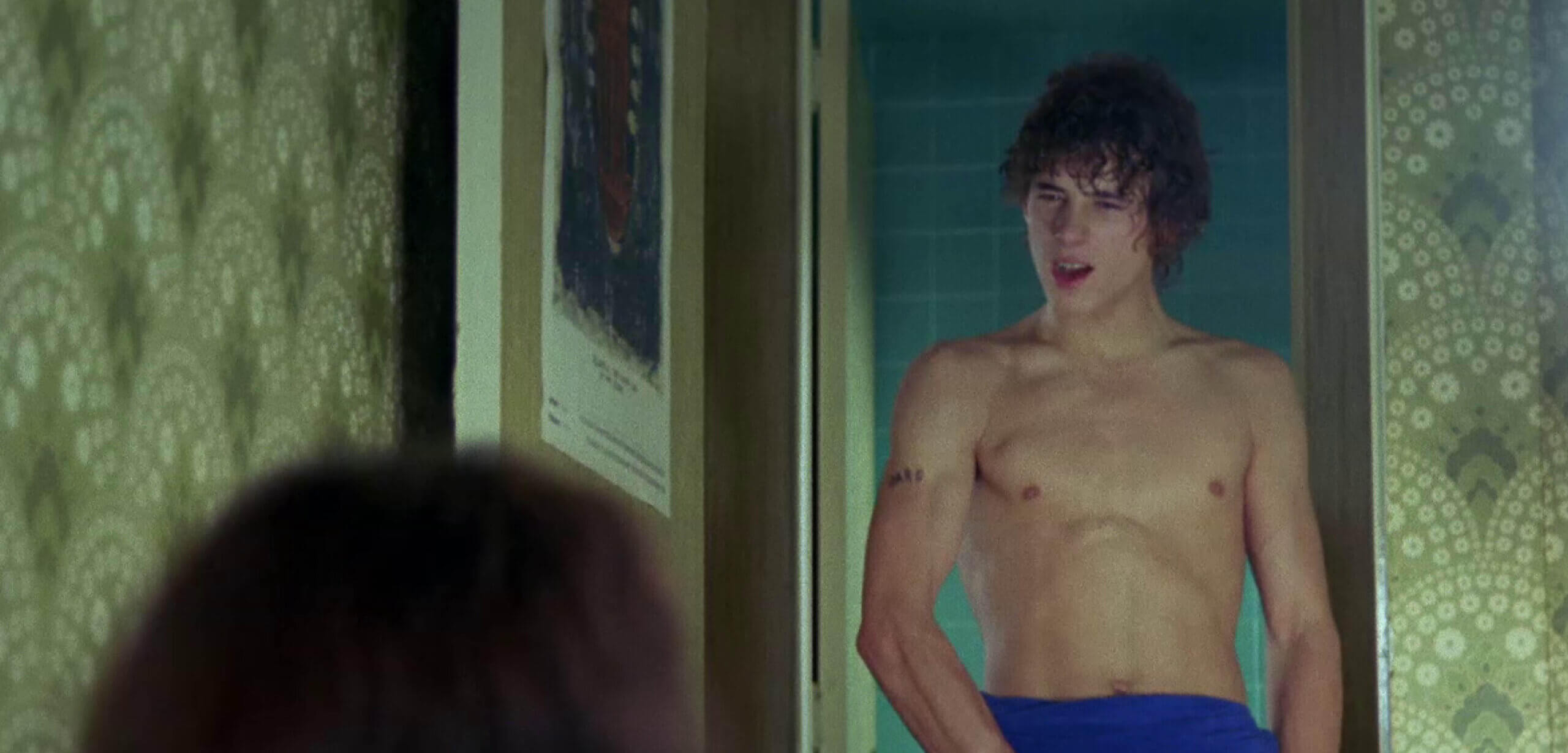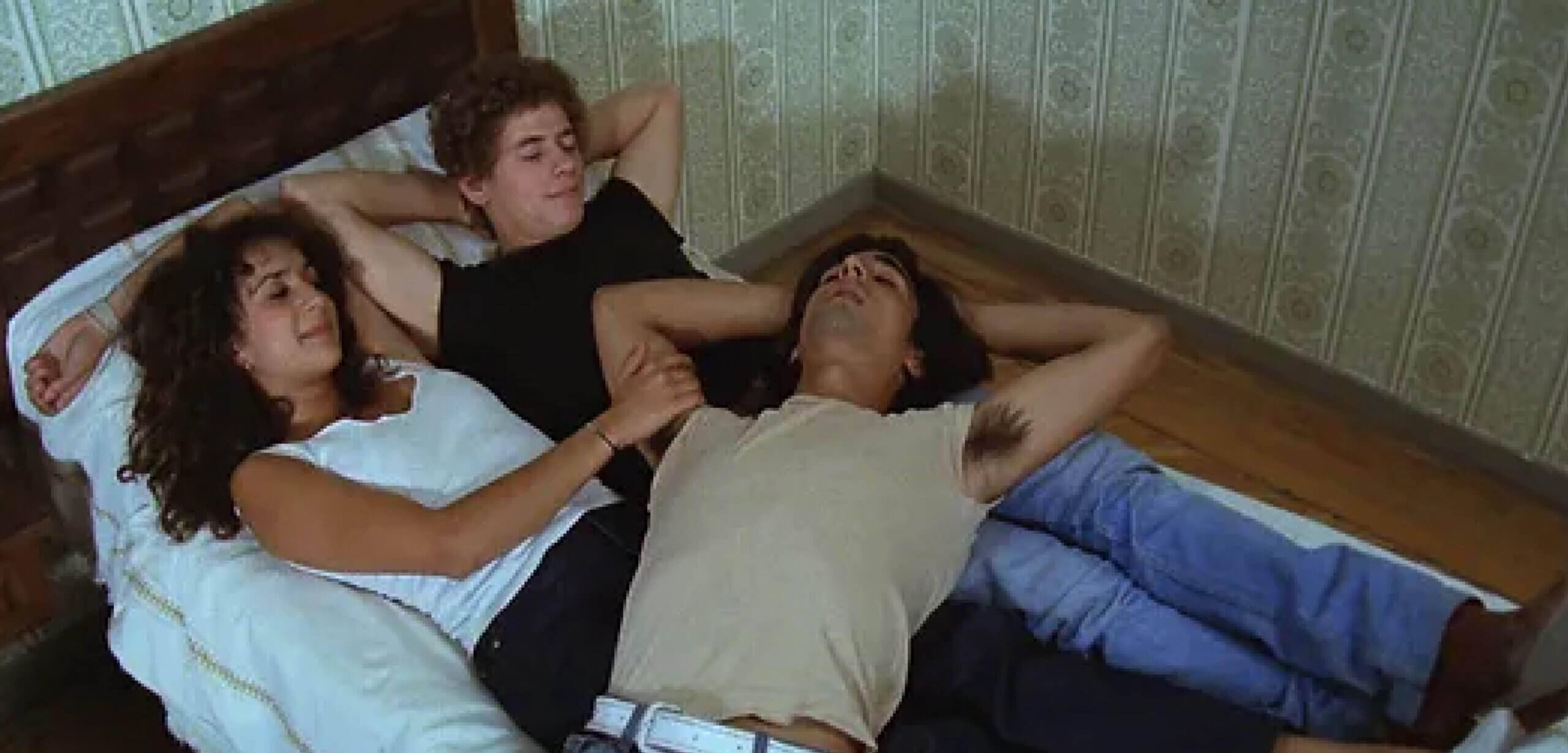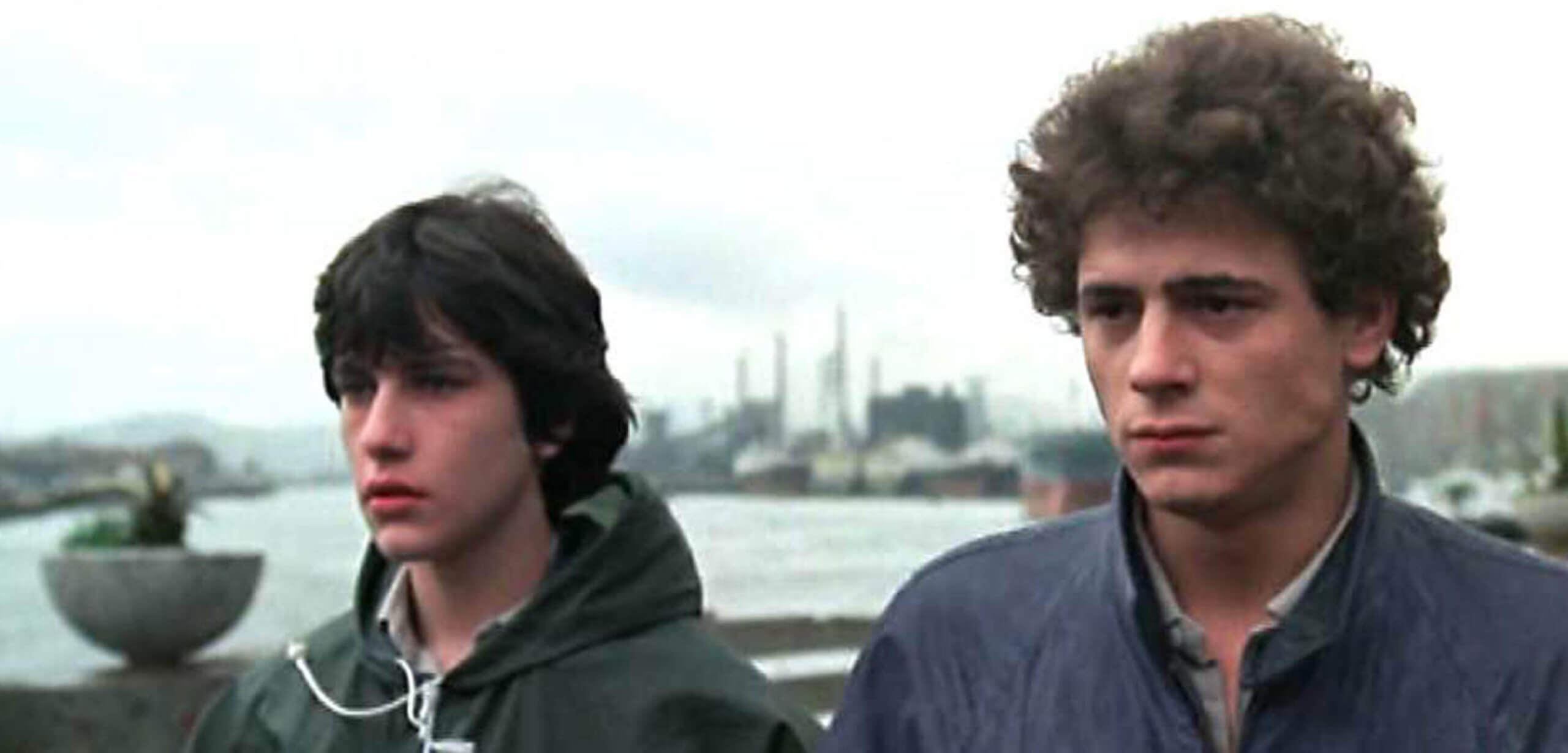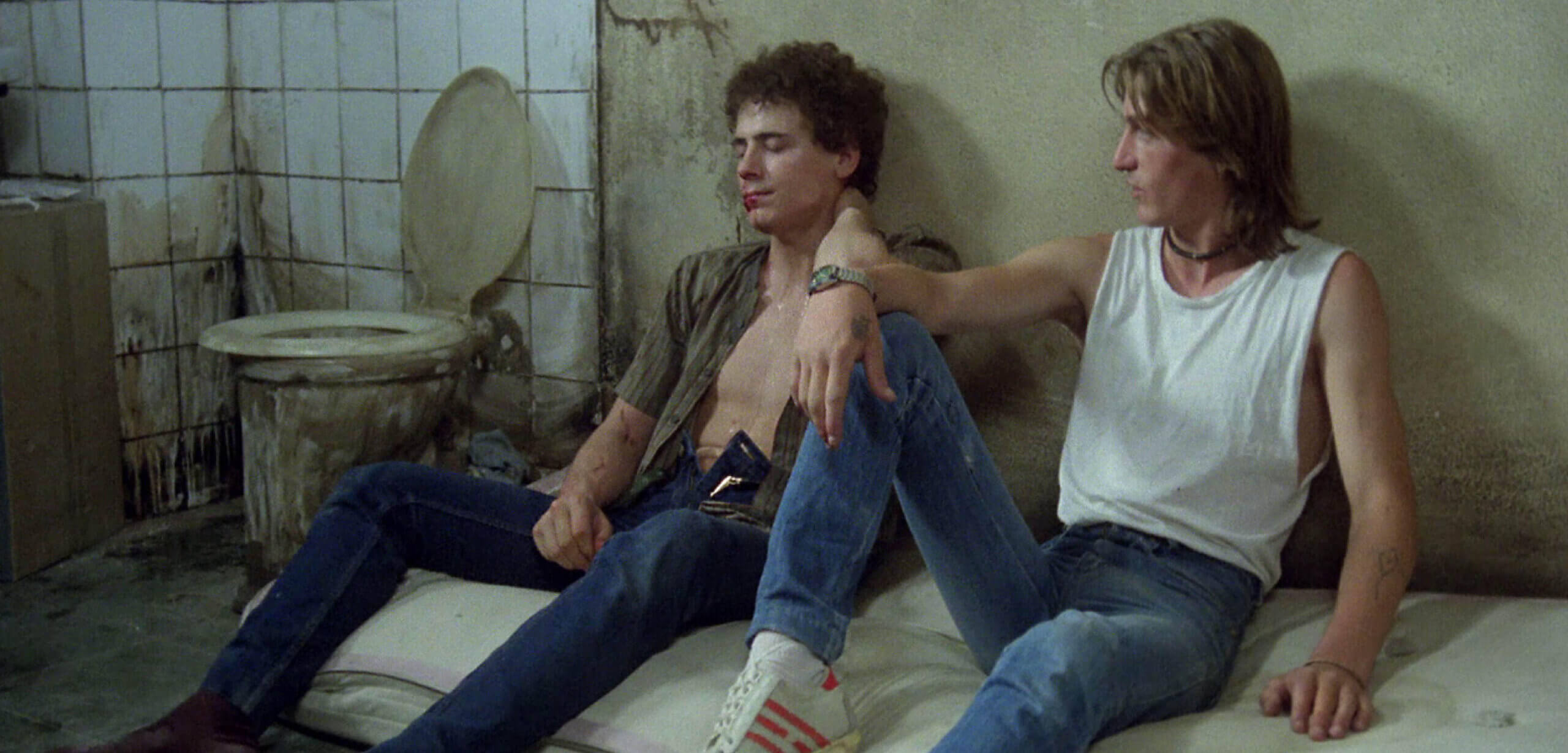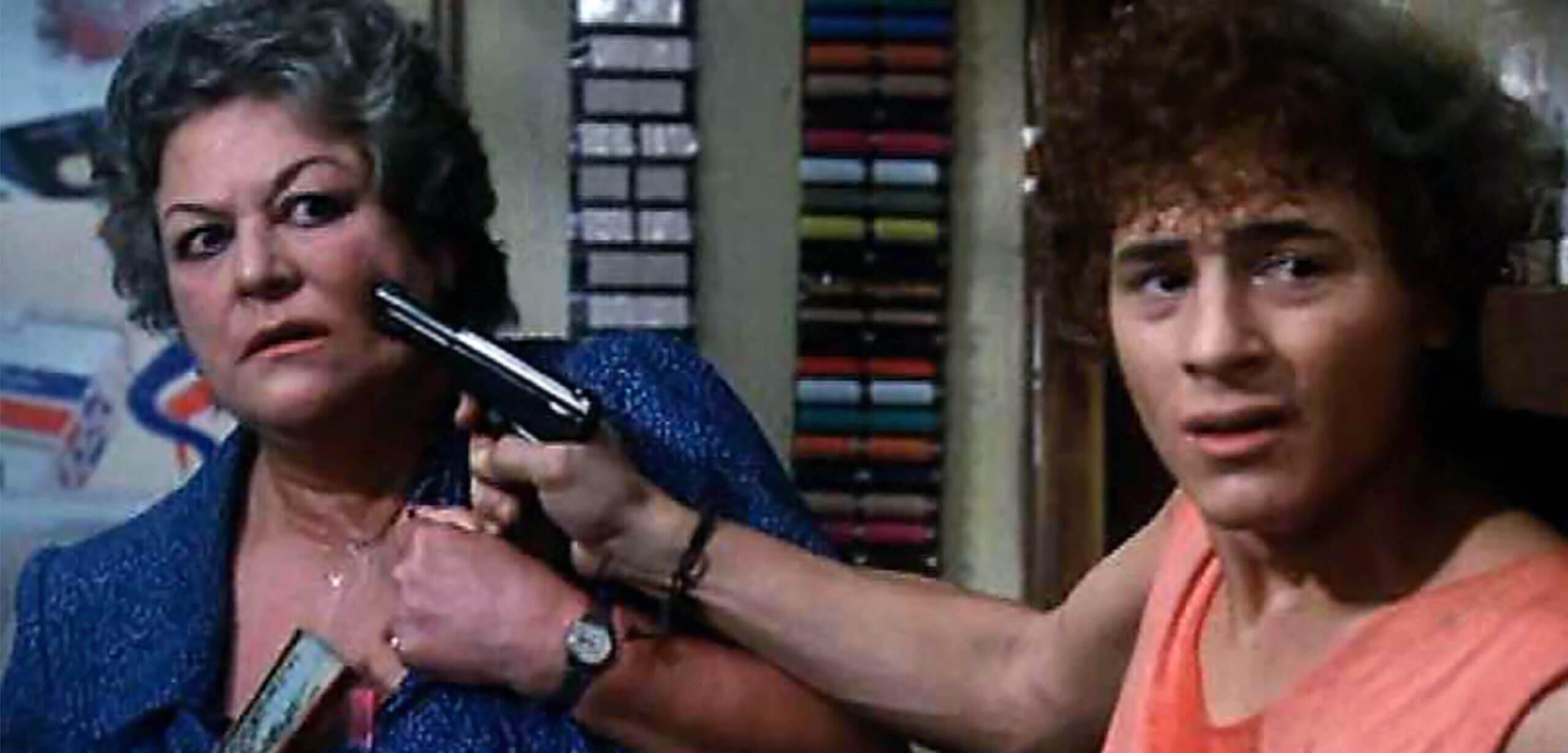The waning days of Franco’s dictatorship enlivened the desires of a generation of artists whose transgressive fantasies had been simmering for decades. Among them, was the ever-political enfant terrible of Spanish cinema: Eloy de la Iglesia.
Though his prolific career merits its own retrospective, Spectacle Theater will be showing the filmmaker’s late-career gems as part of our continued spotlight on Spain’s Cine QuinQui. Having already proved himself a master of the melodrama with films like EL DIPUTADO and EL SACERDOTE, and demonstrated a proclivity for the demented with CANNIBAL MAN, De la Iglesia’s commitment to making films about the young and aimless (some might say doomed) generation caught in the historical juncture between Franco and a free, but unsteady, future dually testifies to his forward-thinking political zeal as much as his fascination with social groups undercutting cultural norms.
Coming off the heels of a series of critically acclaimed films, De la Iglesia turned his attention to his nation’s youth with 1980’s NAVAJEROS. Often compared to Luis Buñuel’s LOS OLVIDADOS despite their only similarities being the spoken language and focus on downtrodden adolescents, NAVAJEROS marks De la Iglesia’s first foray into his exploration of QuinQui customs and aesthetics. This initiation into the sub-group’s lifestyle would bring him face-to-face with its preoccupations –– sex and drugs. Naturally, each of the core elements of QuinQui culture would inform the filmmaker’s most famous films from this era: COLEGAS and EL PICO + EL PICO 2 respectively. COLEGAS is a sex comedy about two teenagers hustling to pay for an abortion. The EL PICO diptych chronicles a Basque Civil Guard’s strained relationship with this son who is addicted to heroin. In the last film from this program, the oft unseen LA ESTANQUERA DE VALLECAS, De la Iglesia offers a more nuanced entry in QuinQui film by honing in on a tobacco shop where a heist’s slow worsening reveals the underlying stressors forcing the film’s protagonists to a life of crime.
NAVAJEROS
(KNIFERS)
dir. Eloy de la Iglesia, 1980
95 min. Spain.
In Spanish with English subtitles.
THURSDAY, MAY 4 – 7:30 PM
TUESDAY, MAY 30 – 10 PM
FRIDAY, JUNE 9 – 10 PM
TUESDAY, JUNE 20 – 10PM
Based on the exploits of the real life “El Jaro,” a Madrid gang leader whose gang contained over 30 young boys before his death at the age of 16, NAVAJEROS is the first film by Eloy de la Iglesia to star his future muse and lover, José Luis Manzano, in an electric and iconic performance. Portraying José Manuel Gómez Perales, alias el Jaro, with both delicacy and rage, the non-professional actor would become a sensation in Spain, going on to appear in 4 more Quinqui titles (Colegas, El Pico, El Pico 2, and La Estanquera de Vallecas) for Eloy de la Iglesia.
It features an eccentric soundtrack of Rock Urbano (Burning), Rumbas (Los Chichos) and even Western Classical music, which scores a gleefully violent rumble in the Retiro Park in a nod to Stanley Kurbrick’s A CLOCKWORK ORANGE. The tension and interplay between styles and genres animates the film’s most daring and remarkable sequences and De la Iglesia’s camera captures a richly detailed picture of teen delinquency and youth culture. Shot on location around Madrid and its poor outskirts, it brims over with authentic raw performances and fearless depictions of transgressive sex and drug use that for years would appear in and define De la Iglesia’s work, as much as his political convictions and his cinematic commitment toward Spain’s marginalized youth.
COLEGAS
(PALS)
dir. Eloy de la Iglesia, 1982
99 min. Spain.
In Spanish with English subtitles.
SATURDAY, JUNE 3 – 10 PM
MONDAY JUNE 26 – 10 PM
In the outskirts of Madrid, two young friends, José and Antonio, played by José Luis Manzano and Antonio Flores, need to come up with money for an abortion when José impregnates Antonio’s sister Rosario, played by Rosario Flores. With no jobs and few prospects, they turn to a life of street hustling and crime, falling deeper into Madrid’s underworld. Director Eloy de la Iglesia’s gritty film grapples with controversial issues of the era, such as teen drug use, homosexuality, abortion and even child trafficking with frankness and guts.
The casting of a real life brother and sister duo, Rosario and Antonio Flores, as on-screen siblings, adds authenticity and weight to the film. As children of the legendary Spanish singer, dancer and actress Lola Flores, the duo could be seen to represent the sons and daughters of a lost generation, coming of age in a period of rapid social and political change, high youth unemployment and rising crime. Antonio Flores, like many of Cine Quinqui’s leading men, including José Luis Manzano himself, would die young and tragically of a drug overdose. The film, which is both sensitive and brutal, is a tribute to the youth of the time, to those who somehow carried on, and to those who fell between the cracks.
EL PICO
(OVERDOSE)
dir. Eloy de la Iglesia, 1983
105 min. Spain.
In Spanish with English subtitles.
MONDAY, MAY 8 – 7:30 PM
FRIDAY, MAY 19 – 5PM
MONDAY, JUNE 5 – 10PM
MONDAY, JUNE 19 – 7:30PM
The title itself contains a clever double meaning. EL PICO, the tip, refers to both the tip of the needles used by the story’s heroin-addicted youth and the peaks of the Guardia Civil’s iconic tricorn hats. It is the story of a generational conflict set amidst the larger Basque Conflict, where the teenage sons of a right-wing Civil Guard Commander and a left-wing Basque Separatist Politician battle heroin addiction in Bilbao, one of the main ports of entry for heroin during those years of unrest and transition. The depiction of addiction is graphic and unflinching, including a particularly difficult and heartbreaking scene centered around a baby born with Neonatal Abstinence Syndrome.
The third collaboration between Eloy de la Iglesia and screenwriter Gonzalo Goicoechea is a highly affecting melodrama, with standout performances by José Luis Manzano in the role of the drug-addicted son Paco, Enrique San Francisco as a sensitive artist who the aids him during his withdrawal, and José Manual Cervico in the role of Guardia Civil Commander Evaristo Torrecuardra, Paco’s father. Torrecuardra, as his last name also implies, is a conservative Catholic patriarch; a symbol of the old Spain, a Spain under Franco. Lost in new Democratic Spain, his son’s struggles force him to question his beliefs and ideals. Though Quinqui films were explicitly targeted at Spain’s youth, EL PICO proved to be popular across generations. It was De la Iglesia’s biggest box-office hit and led to EL PICO 2 just one year later.
EL PICO 2
(OVERDOSE 2)
dir. Eloy de la Iglesia, 1984
120 min. Spain.
In Spanish with English subtitles.
TUESDAY, MAY 9 – 7:30 PM
FRIDAY, MAY 26 – 5 PM
WEDNESDAY, JUNE 14 – 7:30PM
TUESDAY, JUNE 27 – 10PM
“EL PICO 2 begins as Paco and his father move back to Madrid to live with the grandmother as the father seeks a detox treatment for his son. After an eyewitness implicates Paco in the murder of el Cojo and his wife, he is sent to prison. In the meantime, a journalist seeks to expose how Paco’s crime reveals a broader web of police corruption.”
— Tom Whittaker, The Spanish Quinqui Film: Delinquency, Sound, Sensation
Made on the heels of EL PICO’s success, Eloy de la Iglesia’s decision to return to his melodrama about a Francoist father and his heroin-addicted son sees him take a more critical approach toward examining the generational differences punctuated by the radical shift in political life that accompanied the end of Francoism. In taking the story from Bilbao to Madrid, De la Iglesia shifts the focus to Spain’s capital, getting to the root of the inefficient policy-making dictating the troubles of the transition. In tracking Paco’s attempts at leaving heroin behind, the audience becomes implicated in a history of carelessness that sees broken family connections reflected in greater government dysfunction.
LA ESTANQUERA DE VALLECAS
(THE TOBACCONIST OF VALLECAS)
dir. Eloy de la Iglesia, 1987
106 min. Spain.
In Spanish with English subtitles.
SUNDAY, MAY 7 – 5 PM
MONDAY, MAY 22 – 10 PM
SATURDAY, JUNE 10 – 7:30PM
FRIDAY, JUNE 23 – 5PM
“Two delinquents from three to a quarter enter to rob a tobacco store in an emerging neighborhood of a big city, and, given the resistance of the tobacconist to their threats, she and her niece are taken hostage, which provokes the presence of the police and the pressure to turn themselves in. What in principle had to produce rejection, generates affection and what more had to separate aggressors and attacked, unites them”
— José Luis Alonso de Santos, Author of the play the film is based on.
</>
</>
CASILDA GARCÍA LÓPEZ is a Brooklyn-based Creative Producer from Madrid. García López has a profound passion for Hispanic cultures interviewing prominent figures in the Spanish landscape such as philosopher Ernesto Castro, (ex)flamenco Niño de Elche and electro-queer icon Samantha Hudson. Having worked professionally in development, acquisitions and production in multi-content campaigns of wide-ranging budgets, she yearns to partake in visually and intellectually stimulating content from its creative conception to its final delivery. As Madrid’s León Felipe Youth Poetry Award winner, Casilda believes that all true art is some way or another poetry.
Co-produced by Casilda García and New York University’s King Juan Carlos I of Spain Center. This series is brought to you in collaboration with NYU KJCC, a NY-based cultural institution promoting research and teaching on the Spanish-speaking world.
Special thanks to Casilda García, Alfred Giancarli; Director of NYU KJCC Jordana Mendelson; Associate Director of NYU KJCC Laura Turegano; Frank Jaffe at Altered Innocence; Victoria Bou and Mario Martínez at Mercury Films; Kier La-Janisse; Severin Films; and the American Genre Film Archive.

